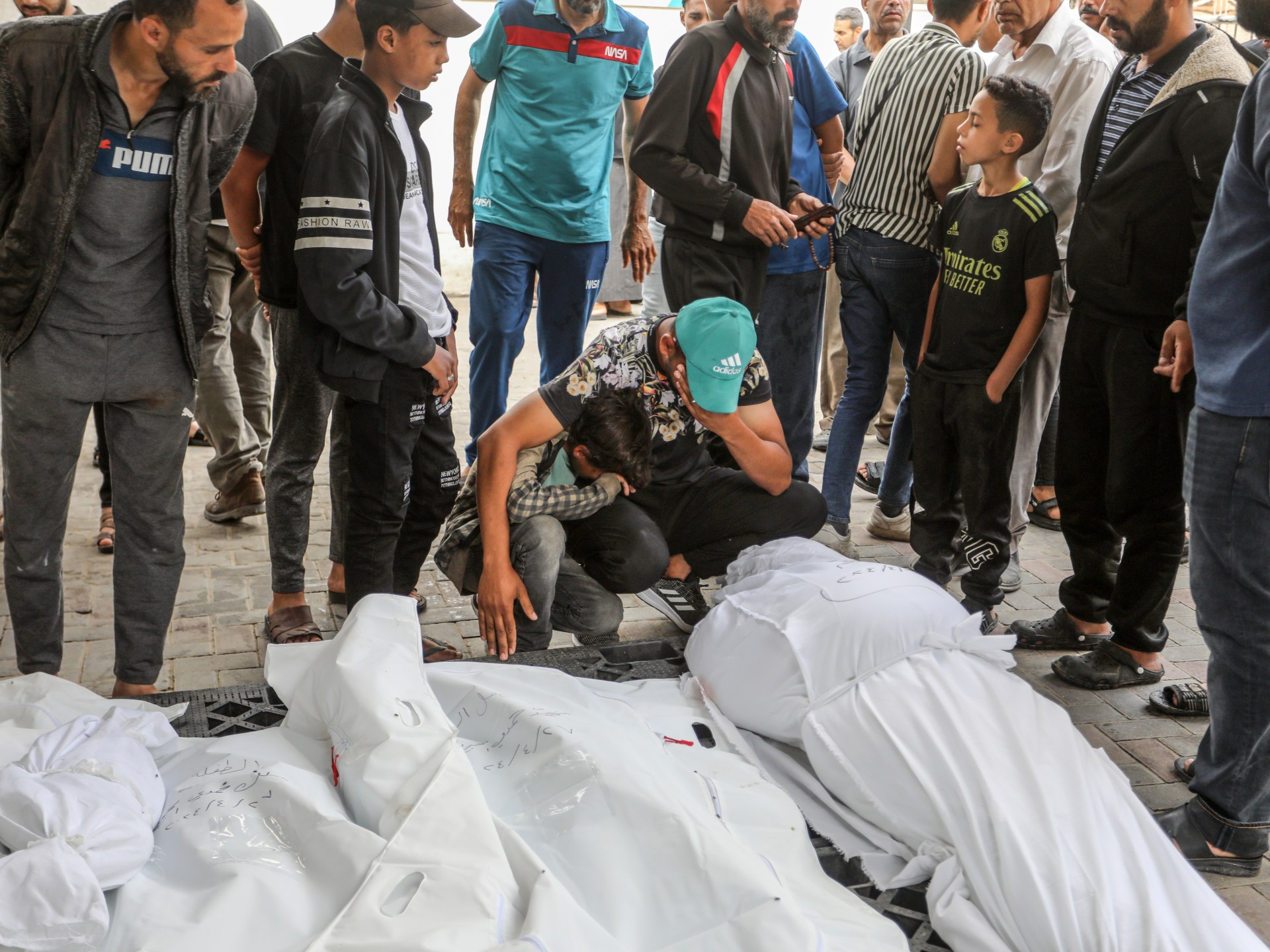
A senior Hamas delegation is travelling to Egypt for the latest round of negotiations aimed at pausing – if not stopping – Israel’s relentless war on Gaza, even as the prospect of a devastating ground invasion of Rafah in the enclave’s south looms.
Led by Khalil al-Hayya, the deputy head of Hamas in the Gaza Strip, the delegation will hand in the group’s response to the latest Israeli proposals at talks in Cairo mediated by Qatar and the United States.
Here’s what we know about the state of the talks and why they matter at a time when Israel’s war has already killed more than 34,500 Palestinians, mostly women and children.
What has happened with the talks in April?
Hamas and Israeli officials have been speaking through intermediaries throughout April but with little to show for it in terms of tangible results.
Negotiators were in Cairo on April 7, and while Egyptian sources said some progress was made on a three-stage agreement that would entail an exchange of prisoners leading to a long-term ceasefire, the Palestinian group did not share that assessment.
In late March, Israel proposed that an Arab force could oversee security in Gaza temporarily, but the suggestion was rejected. Hamas has insisted it stands by its fundamental demands: a permanent ceasefire, the withdrawal of Israeli forces from Gaza, unrestricted return of displaced Palestinians to their homes, permission for more aid to enter the enclave and the start of a reconstruction process.
Despite deep differences, both sides have signalled they are eager to work towards a truce.
What’s the latest truce proposal?
Last week, the head of the Hamas delegation told Al Jazeera Arabic that the group “is serious about releasing Israeli captives” if an agreement that includes a permanent ceasefire is reached.
Egypt then sent its own delegation to Israel last week to jump-start the stalled negotiations. Since then, Hamas has confirmed receiving a new proposal from Israel on Saturday.
Quoting two unnamed Israeli officials, the US news site Axios reported that the latest Israeli proposal includes a willingness to discuss the “restoration of sustainable calm” in Gaza. According to the Reuters news agency, the proposal seeks the release of about 130 Israeli captives still held in Gaza. Hamas and other Palestinian armed groups captured and took more than 200 people to Gaza after their attacks on southern Israel on October 7.
However, the two sides are now believed to be discussing the release of a smaller number of captives – 33 women, children and older captives – in the first phase of any new truce. In exchange, Hamas is seeking the release of Palestinian prisoners in Israeli jails. Details on the number of prisoners are unclear.
According to Reuters, Israel might allow some movement of Palestinians displaced from northern and central Gaza back to their homes and might withdraw some troops in the second phase of any deal.
Egypt, Qatar and the US have been unsuccessfully trying to broker a new Gaza truce ever since a one-week halt to the fighting in November saw 80 Israeli captives exchanged for 240 Palestinians held in Israeli prisons.
The talks have taken on a new urgency amid growing suggestions from Israel that it might launch a ground assault on Rafah, where 1.5 million displaced Palestinians are trapped.
Will the ongoing diplomatic push yield results?
On Saturday, Israeli Foreign Minister Israel Katz said his government might suspend its declared Rafah offensive if the talks in Cairo yield a deal.
Meanwhile, Qatari Ministry of Foreign Affairs spokesperson Majed al-Ansari has urged Israel and Hamas to show “more commitment and more seriousness” in the ceasefire negotiations.
US Secretary of State Antony Blinken landed in Saudi Arabia on Monday in the first stop in yet another Middle East tour centred on the war in Gaza.
In Riyadh, Blinken is expected to meet senior Saudi leaders and hold a wider meeting with counterparts from Qatar, Egypt, Saudi Arabia, the United Arab Emirates and Jordan before visiting Jordan and Israel.
Palestinian Authority President Mahmoud Abbas has warned that the US is the only country that can prevent Israel from launching an assault on Rafah.
“The biggest catastrophe in the Palestinian people’s history would then happen,” he said of the consequences of failure to stop Israel.
How is Rafah dividing top Israeli officials?
But Israeli Prime Minster Benjamin Netanyahu has a divided house to deal with domestically – and the contours of any truce with Hamas could impact the future of his fragile governing coalition.
National Security Minister Itamar Ben-Gvir and Finance Minister Bezalel Smotrich have directly threatened to “dismantle” the government and take down Netanyahu if the truce involves what they might view as concessions to Hamas.
“A government headed by you will have no right to exist,” Smotrich said in a video message addressed to Netanyahu.
Benny Gantz, a member of the Israeli war cabinet, has an opposite view. Gantz has argued that releasing captives is “urgent” and ought to be the government’s priority. Opposition leader Yair Lapid has also urged a deal focused on the release of Israeli captives.